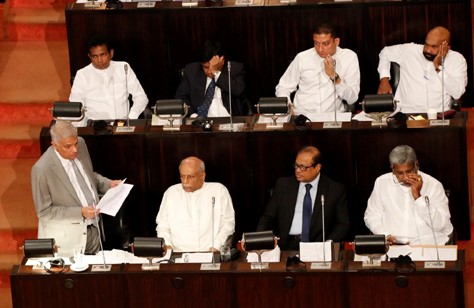Mercantilist Sri Lanka to teach ‘economics’ to politicos, bureaucrats
COLOMBO – President Ranil Wickremesinghe has proposed the setting up of a new institute to teach economics to politicians and , allowing informed decisions to be made.
Cabinet spokesman Bandula Gunewardena, announcing the Cabinet decision to approve the proposal said in a statement that it was essential for Members of Parliament as well as government officers to obtain training on economic and trade activities so that entering into decisions with understanding is possible when formulating national policies and implementing them.
“Therefore, it has been recognized as appropriate that an entity named ‘Sri Lanka Institution of Economic and Trade be established Institute’ be set up to enable provision of necessary facilities,” he added.
Sri Lanka is heavily Mercantilist, and there is widespread opposition to free trade from businesses who seek and get protection decade after decade.
The Sri Lanka Podujana Party (SLPP) strongly opposed President Wickremesinghe’s free trade agreement with Singapore and used it as a tool to come to power.
Free trade was key tenet in Adam Smith’s Wealth of Nations (viewed as a treatise against mercantilism) which gave rise to classical economics.
Sri Lanka also prints money to suppress rates and target an output gap, one of the earlier classical Mercantilist ideologies promoted by the likes of John Law, that received a new lease of life after J. M. Keynes and the Federal Employment Act of the US.
Sri Lanka however has now defaulted and the collapse of a so-called flexible exchange rate has led to malnutrition of poorer sections of society.
Promoting exports at the expense of domestic poverty and social unrest by busting the currency may also be a form of Mercantilism.
-economynext.com/ENCL



Comments are closed, but trackbacks and pingbacks are open.